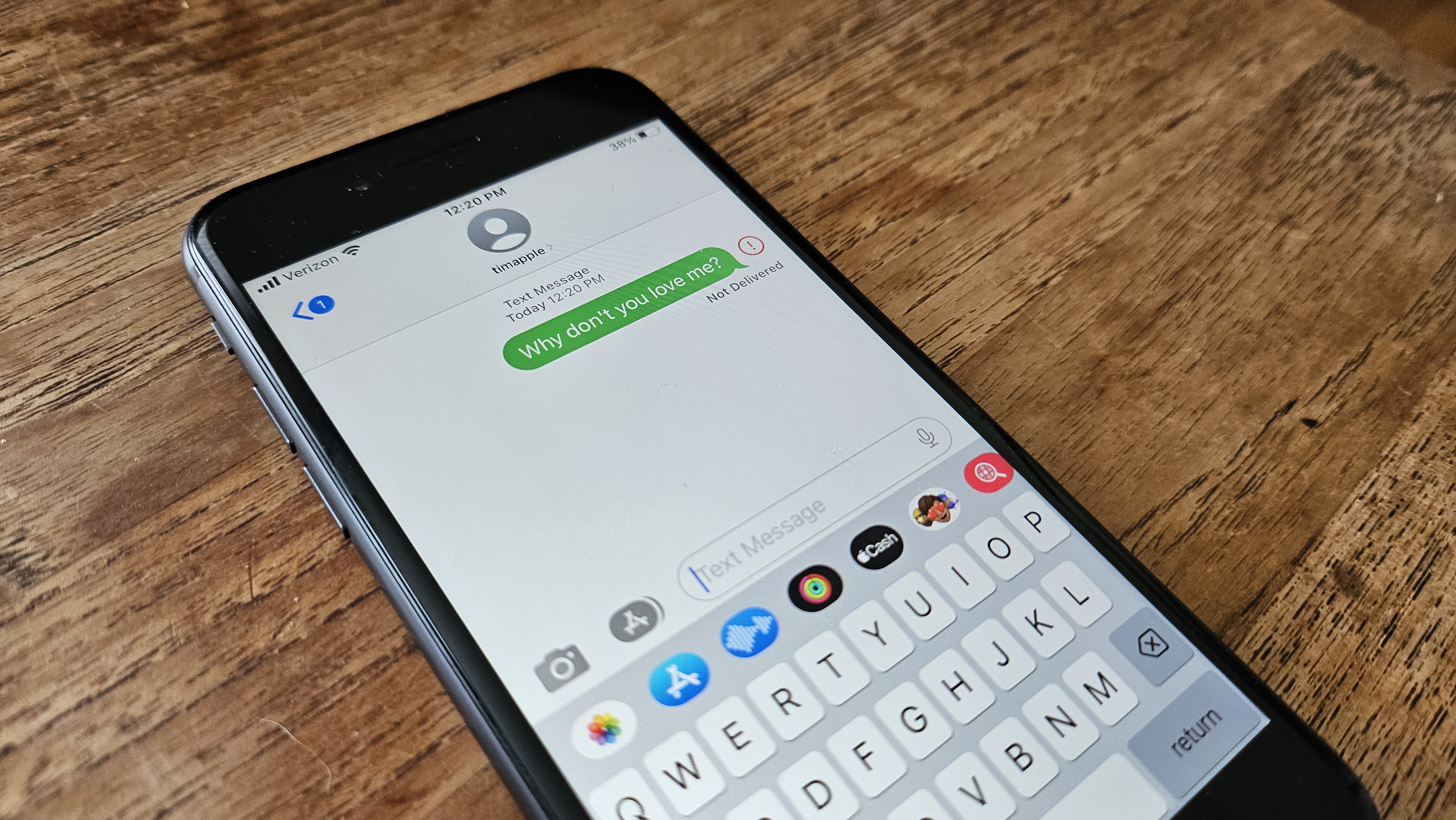After a decade of iMessage dominance, our green bubble nightmare is over: Apple is adopting a universal texting standard with Android next year
Apple will begin to support RCS messaging in 2024, the modern replacement for SMS.

For the last decade, nothing has kept people loyal to—or trapped in—the Apple ecosystem more than iMessage. Apple's messaging app creates a harsh divide between other iPhone users (beautiful blue bubbles, messages sent over data, integrated file sharing and encryption and more) and Android users (green bubbles, ancient unencrypted SMS) whose presence in a group chat would ruin everyone else's access to those advanced features. If Apple was ever going to bring down the walls around iMessage, I figured it would be a dramatic moment in one of its annual keynotes—not on a random Thursday, which happens to be today.
"In a surprising move, Apple has announced today that it will adopt the RCS (Rich Communication Services) messaging standard. The feature will launch via a software update 'later next year' and bring a wide range of iMessage-style features to messaging between iPhone and Android users," 9to5Mac reported this morning.
Despite years of needling from Google, Apple has stuck to its guns with keeping iMessage exclusive to iPhone users and ignoring RCS, a standard that Android has been pushing for several years now as a replacement for the outdated SMS protocol. RCS incorporates many of the same features as iMessage—it uses data instead of older cellular network infrastructure, supports read receipts, reactions, seamless group chats, and all that good stuff.
The most practical benefit of RCS is being able to send messages and media over wi-fi, and with a common standard it's much easier to communicate between different types of devices, like, say, a PC and a phone, without a dedicated app. People have become so desperate to use iMessage on non-Apple devices that in just the last couple years we've seen startups like Beeper and Sunbird pop up to bridge that gap with dedicated Android apps and either desktop or browser-based clients. With today's announcement, Apple may have just effectively killed off the userbase for those services.
I don't think it was public pressure from Google and Samsung, like this cheeky ad, that changed Apple's mind—the "green bubble" wall has been strong for many, many years and no doubt keeps many folks from dabbling with an Android phone after years of iPhone ownership. CEO Tim Cook was asked about supporting RCS in 2022, and said "I don’t hear our users asking that we put a lot of energy in on that at this point. I would love to convert you to an iPhone."
Two years later, I think Cook and co. saw which way the regulatory winds were blowing and decided to act before they were forced to, as it did with the USB-C port on this year's iPhone. The European Union ruled that phones needed to move to a universal charging port in 2024, and there was a chance it would force Apple to move onto RCS next year.
Here's the official statement from Apple sent to 9to5Mac:
Keep up to date with the most important stories and the best deals, as picked by the PC Gamer team.
"Later next year, we will be adding support for RCS Universal Profile, the standard as currently published by the GSM Association. We believe RCS Universal Profile will offer a better interoperability experience when compared to SMS or MMS. This will work alongside iMessage, which will continue to be the best and most secure messaging experience for Apple users."
RCS chats may well retain SMS's old green bubble mark of shame, but this is great news for iPhone users and people like me, who like to use chat programs on PC to message people when I'm at my desk instead of making a bunch of typos on a touchscreen. The biggest winners, though, are the lone Android users in otherwise fully iPhone families, who will no longer be left out in the cold or get grief at every family gathering for "ruining the family group chat."

Wes has been covering games and hardware for more than 10 years, first at tech sites like The Wirecutter and Tested before joining the PC Gamer team in 2014. Wes plays a little bit of everything, but he'll always jump at the chance to cover emulation and Japanese games.
When he's not obsessively optimizing and re-optimizing a tangle of conveyor belts in Satisfactory (it's really becoming a problem), he's probably playing a 20-year-old Final Fantasy or some opaque ASCII roguelike. With a focus on writing and editing features, he seeks out personal stories and in-depth histories from the corners of PC gaming and its niche communities. 50% pizza by volume (deep dish, to be specific).

